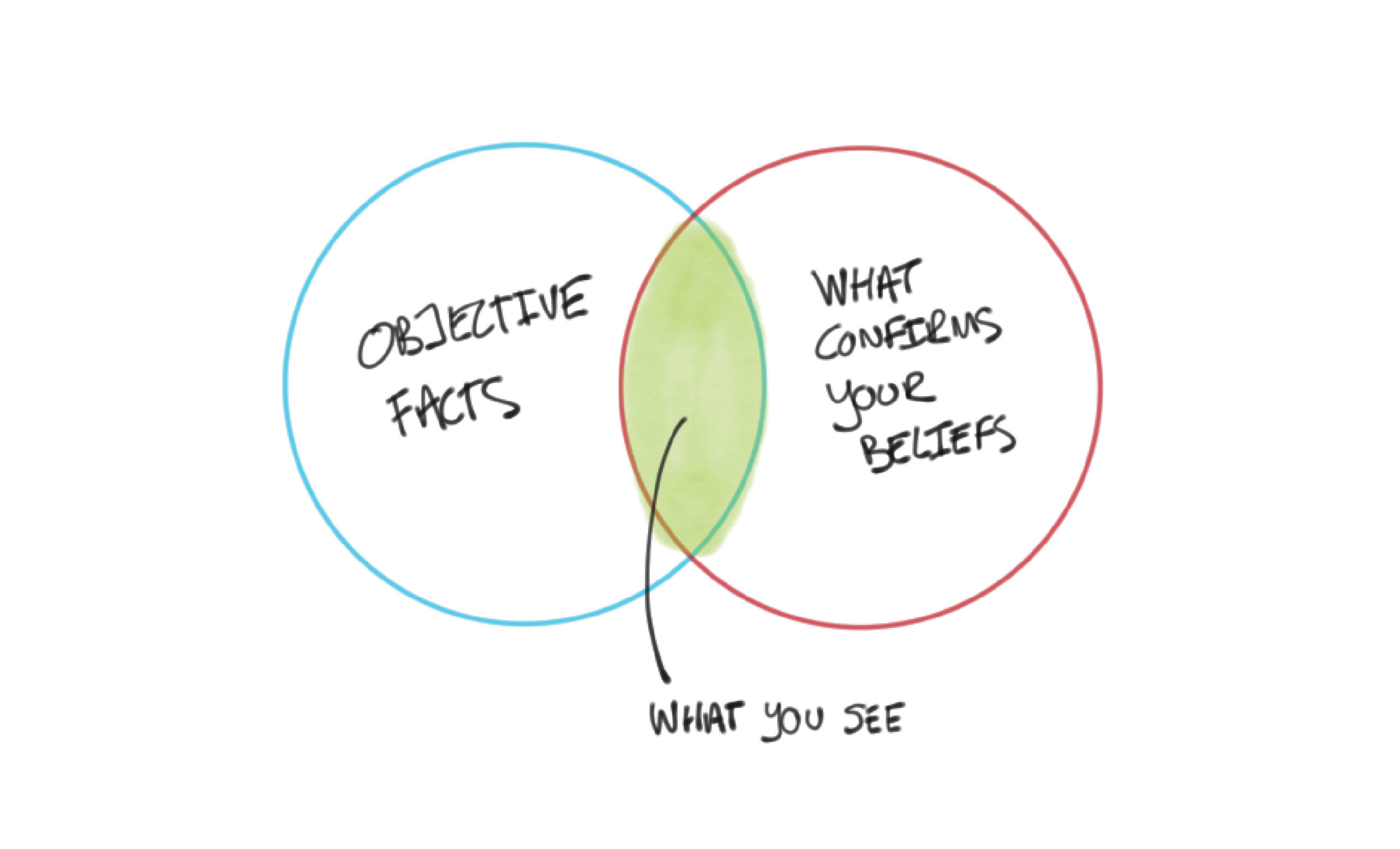Confirmation Bias: How to Mitigate its Impact on Litigation
What is confirmation bias?
Confirmation bias is the tendency for people to search for, interpret, favor and recall information that confirms their preexisting beliefs. Conversely, information that supports a different viewpoint is likely to be dismissed or ignored. Confirmation bias is a heuristic or mental shortcut which developed as a way for people to make sense and provide order in a complex world. Rather than exerting cognitive effort needed for considering new or different information, people more easily construct their world using information that fits into their existing viewpoints. Confirmation bias can be found in many facets of everyday behavior and can exert great influence in how people process information and make decisions in politics, finance, medicine, personal relationships, and our legal system. For example, in politics, people often search for information that confirms and bolsters their political views (e.g., watching or reading articles that are consistent with their beliefs) and denigrate news sources that are contrary to their preexisting viewpoints.
How does confirmation bias affect litigation?
Confirmation bias exists in many aspects of our legal system. In this article, we will examine ways it can impact litigation and the trial process, specifically with regard to how attorneys present evidence and how jurors perceive and process information. We will also explore how the confirmation bias of attorneys potentially impacts the litigation process and the resolution of their cases.
The confirmation bias of the attorney
As advocates for their clients, attorneys spend a great deal of time reviewing the evidence and the law in order to present their case in the most favorable light. Attorneys are continually advocating for their client during discovery, while writing briefs, arguing motions, participating in settlement negotiations, and throughout trial. As attorneys work on a case, there is truth to the adage that there is a tendency to “fall in love with one’s case.” Confirmation bias initially occurs when facts uncovered in discovery are interpreted in a way most favorable to their client and are given disproportionate importance while facts which are unfavorable are disregarded or given less significance and weight. Confirmation bias can negatively impact litigation and the ultimate outcome of the case. An attorney may disregard or dismiss important facts which do not confirm or easily fit with his or her theory of the case. These disregarded facts, however, may be persuasive to a judge, mediator or jury. An attorney also may give less weight to a seemingly irrelevant fact or an emotional argument, not objectively understanding how a jury may view this element of the case. Attorneys and/or their clients may become enamored by the facts supporting their theory that an opportunity for productive settlement discussions will be lost, or an unrealistic valuation of the case will prevent resolution.
The confirmation bias of the juror
If a case reaches trial, another source of confirmation bias will be found with the jury. Jurors bring with them various biases, preexisting views, and life experiences about the legal system, parties, and overarching case issues before ever stepping into a courtroom. For example, in civil cases, jurors’ attitudes about issues such as corporate conduct, personal responsibility, and damages can affect their interpretation of the evidence, attitudes about parties and witnesses, as well as their ultimate verdict decisions. Confirmation bias will affect how each juror evaluates, interprets, and remembers evidence and will ultimately play a role in how a case is decided. Research has shown that even if jurors believe they will be fair and impartial and can set aside their preconceived notions, they will still make decisions based upon these unconscious biases. Confirmation bias causes jurors to bolster their preexisting beliefs and cast aside those which do not fit with their case narrative.

Mitigating confirmation bias in your case
Despite the prevalence of confirmation bias and the effect it can have in litigation and at trial, there are ways to help mitigate bias during the litigation process.
Regarding attorney confirmation bias, throughout the litigation it is crucial to engage in “perspective shifting.” This may be accomplished by attorneys listing the most positive and persuasive points of their adversary’s case and the most negative points of their case. Attorneys may evaluate and even argue their adversary’s case in order to see the case more objectively. Trial attorneys also sometimes present their case to support staff, associates or their partners. However, their individuals’ backgrounds, life experiences and attitudes are likely to be very different than the jurors who will ultimately be evaluating and deciding their case. Moreover, there is also the tendency for colleagues to give supportive feedback which may not reflect the reactions of actual jurors. As a result, a mock trial or focus group exercise provides much more reliable feedback for testing cases. The jury research results provide feedback on the effectiveness of case themes and storylines, the ability to counter the evidence and arguments likely to be presented by the other side, and offers recommendations for enhancing witness credibility and the visual presentation of evidence. The key component of any jury research exercise is to make sure that their adversary’s position is fairly presented in a comprehensive and hard-hitting manner. Otherwise, the results may be skewed in their favor.
At trial, mitigating juror bias should begin with using a juror questionnaire in advance of voir dire. Research has indicated that jurors are more likely to give more candid responses and indicate bias in written questionnaires as compared with in-person questioning. Once the voir dire process begins, if your jurisdiction allows it, attorneys should request to conduct their own voir dire, rather than judge conducted voir dire. Studies have shown that a skilled trial attorney is better able to elicit juror bias than a judge. Another technique that attorneys can use during voir dire to ascertain bias is to use examples which “normalize” and de-stigmatize bias and to show how it occurs in everyday life. Attorneys may use a personal example such as the one below:
“I am a huge Red Sox fan. If there is a case involving the Red Sox, I would probably be the wrong juror for the case, as I do not think the Red Sox could do any wrong. I would be an excellent juror for many other cases, but not one about the Red Sox.”
Another method to ascertain juror bias is to frame questions to avoid telegraphing a correct or incorrect response and give permission to be honest and express bias. For example, compare the following two voir dire questions:
- How many of you would feel some bias against a plaintiff who is not a U.S. citizen?
- If you had to choose, which of the following two views would you lean toward: one, U.S. courts should primarily be for U.S. citizens, or two, U.S. courts should be open to all?
People are often reluctant to admit flagrant bias that the first question attempts to elicit. However, the second question makes it easier for jurors to indicate that the parties would not start out equally at trial.
During the trial process, confirmation bias can also be mitigated by eliminating ambiguities in your case. Ambiguities allow jurors to interpret existing information in ways that fit with their pre-existing beliefs. In other words, if you don’t provide a clear story for jurors, they will create one themselves based on their preexisting ideas. Simplifying ambiguous or complex issues and putting forth compelling themes will assist the jurors in understanding the case issues instead of substituting information to fit their preconceived notions. If attorneys do not provide jurors with a compelling story, they will create one for themselves.
Conclusion
“To err is human” and bias is a fundamental way people err. Confirmation bias impacts how attorneys and litigants evaluate their cases and how jurors process information presented to them at trial. As this article suggests, awareness of how cognitive bias may impact litigation and using strategies to mitigate it will help attorneys achieve better outcomes for their cases.



